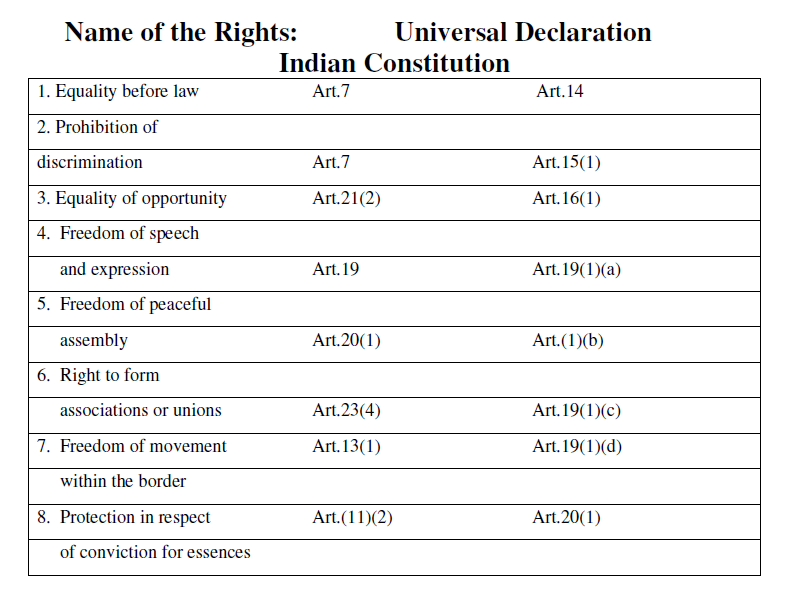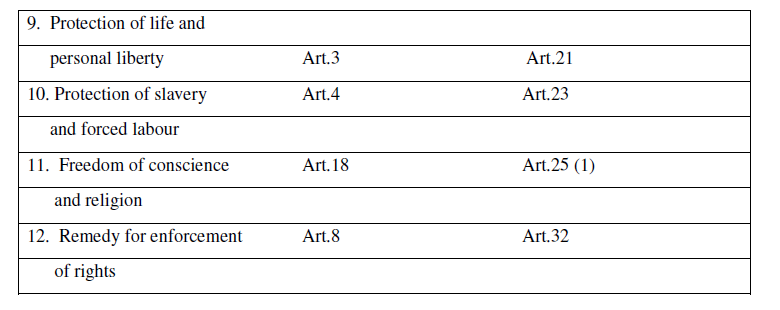SKEDSOFT
Human Rights and Constitutional Provisions:
Right to Life and Liberty:
Art.21 lays down that no person shall be deprived of his life or personal liberty except according to ‘procedure established by law’ which means in a simple way that, a person could not be deprived of his life or personal liberty merely by an executive fiat without there being a valid law to support it. The basic principles of this right are that personal liberty makes for the worth of the human person.
Present View:
Right to life includes the right to live with human dignity and all that goes along with it, Viz. the bare necessaries of life such as adequate nutrition, clothing reading, writing and expressing oneself in diverse forms, freely moving about and mixing and co-mingling with fellow human beings. Thus it is construed that, the term ‘Life’ mentioned in Art.21 of the Indian constitution is not only restricted to the mere animal existence of a person.
Fundamental Right’s Growth in India:
During the British rule in India, human rights were violated by the rulers on a very wide scale. Therefore, the framers of the Indian constitution, who had suffered long incarceration during the British regime, had a very positive attitude towards their rights. Secondly, the Indian society is fragmented into many religions, cultural and linguistic groups and it was necessary to declare fundamental rights and to give to the people a sense of security and confidence. Then it was thought necessary that people should have some rights which may be enforced against the government which may become arbitrary at times. Articles 12 to 35 of the constitution pertain to Fundamental Rights of the people. They have been grouped under seven heads as follows:
(i) Right to Equality comprising Articles 14 to 18, of which Art.14 is the most important.
(ii) Right for Freedom comprising Articles 19 to 22 which guarantee several freedoms.
(iii) Right against Exploitation consists of Art.23 & 24.
(iv) Right to Freedom of Religion is guaranteed by Art.25 to 28.
(V) Cultural and Educational Rights are guaranteed by Art.29 & 30.
(vi) Right to constitutional Remedies is secured by Art.32 to 35.

